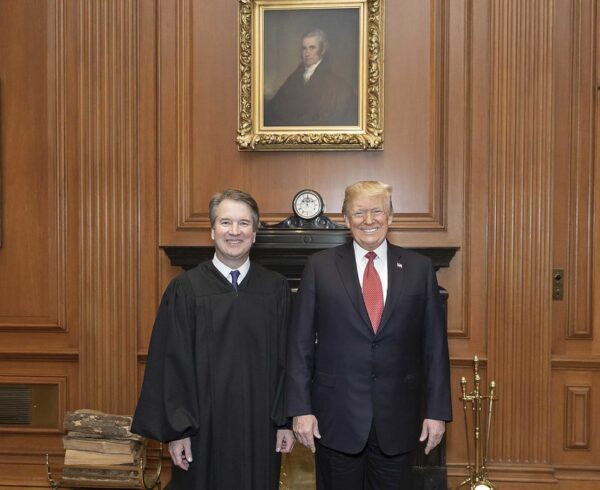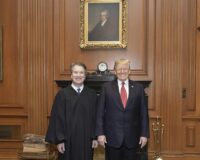My immediately preceding post discussed Ms. Kim Davis, the clerk of Rowan County, Kentucky, and her supporters who have attempted to force their theological ideas onto all citizens of that county with respect to same gender marriage, which she opposes as a result of her fundamentalist distortions of Holy Scripture. I argued that Ms. Davis actually wants the United States to become a theocracy in compliance with her interpretations of Holy Scripture.
Conflation
A dictionary definition of conflation is the combining of two or more texts, ideas, concepts, etc. into one. Ms. Davis and her supporters have conflated the supremacy of Christian principles distorted as the interpretations may be with erroneous ideas of religious freedom under the US Constitution. The problem is an outgrowth of what church historians term, Constantinism, combined with attempts to ignore or circumvent constitutional mandates.
Constantinism
Before the battle in 312 AD that led to his becoming Co-Emperor of the Roman Empire, Constantine reputedly saw a vision of the Christian cross superimposed upon the sun along with the words, “In this sign, conquer.” Roman religion at the time featured sun worship. Superimposition of the two religious symbols suggests the alliance between Christianity and the Roman Empire began with a commingling of religious allegiances.
Constantine realized a unified religion would be valuable in solidifying his hold on the empire. He enlisted the support of the Roman Church in his drive toward absolute rule, and the Roman Church saw great benefit in securing legal status within the empire. Thus, a bargain based upon perceived mutual interests was struck. The 313 AD Edict of Milan, promulgated through Constantine’s efforts, formally recognized Christianity as a legally permitted religion and ended the Empire’s sanctioned persecutions. Constantine became the undisputed Roman emperor in 324 AD. By the time of his death in 337 AD, Christianity was well on the way to becoming the dominant religion of the Holy Roman Empire.
By accepting what is called the Constantinian Bargain, the church effectively agreed that the Empire was the supreme governmental authority. This agreement included Roman Christians paying taxes to the Empire and serving in its armed forces. Throughout the subsequent history of the Christianity, many theologians consider the Constantinian Bargain to be a disaster for the church. The primary reason for this view results from the idea that God and governments have control of, and responsibilities for, separate areas of our lives. That is, in classical terms, a separation exists between our religious and secular duties.
Except for relatively few people with theological training along with exposure to church history, most citizens of the United States probably are unaware of the bargain the early Roman Church made with the Emperor Constantine. Even so, much of our citizenry who declare themselves Christians act in accordance with this bargain, which implies that governments and Christianity have common interests in promoting the welfare of the state, its citizens, and religious institutions. That is, Constantinism is alive and a force to be reckoned with in our Democratic Republic. We see Constantinism at work in declarations that the US Constitution is a Christian document and that our country was founded and operates on Christian principles, implicitly if not explicitly.
Authority
The problem with Constantinism, in the Roman Empire and under our secularly noble Constitution, arises from the tension over authority. That is, in what areas does our government have authority over its citizens versus the areas of authority over our lives through Christian religious principles?
We should first consider the Constitution in answering this question. Article 6 states:
“This Constitution, and the laws of the United States which shall be made in pursuance thereof; and all treaties made, or which shall be made, under the authority of the United States, shall be the supreme law of the land; and the judges in every state shall be bound thereby, anything in the Constitution or laws of any State to the contrary notwithstanding.
“The Senators and Representatives before mentioned, and the members of the several state legislatures, and all executive and judicial officers, both of the United States and of the several states, shall be bound by oath or affirmation, to support this Constitution; but no religious test shall ever be required as a qualification to any office or public trust under the United States.”
The Establishment and Free Exercise clauses of the 1st Amendment state:
“Congress shall make no law respecting an establishment of religion, or prohibiting the free exercise thereof…”
The 14th Amendment states in part:
“All persons born or naturalized in the United States, and subject to the jurisdiction there of, are citizens of the United States and of the State where in they reside. No state shall make or enforce any law which shall abridge the privileges or immunities of citizens of the United States; nor shall any State deprive any person of life, liberty, or property, without due process of law; nor deny to any person within its jurisdiction the equal protection of the laws.”
Federal laws enacted under the Constitution and treaties made under its authority constitute the supreme law of the United States. This supreme law binds state courts; in cases of conflict between federal and state law, the federal law must be applied. Even state constitutions are subordinate to federal law. Discrimination, including on the basis of religion, is prohibited by securing the equal protection of the laws for every person. Furthermore, religious considerations do not apply except by their exclusion.
The Constitution does not cede any authority to Christianity or to other religion. We do not have a state religion, all religions are allowed. We have the constitutional right to worship the deity of our choice and, generally, in the manner we chose with some exceptions. For instance, persons are free to believe in vampirism but not in its practice. In summary, the Constitutional Framers rejected the Constantinian Bargain.
Ms. Kim Davis ran afoul of constitutional authority by her refusal to carry out her duties under the Constitution. Her constitutional guarantee of religious freedom was not infringed; she is free to believe as she will concerning same gender marriage, but she must abide by the supreme civil authority of the Constitution: Either issue marriage licenses to same gender couples or allow her deputies to issue these licenses. Her refusal invoked a civil penalty, under the Constitution, and she served five days in jail for contempt of court. Recent media reports suggest she has not lived up to the terms of her release from jail.
Ms. Davis and her supporters may consider her a martyr, a position I reject. Had she resigned her $80,000 position as county clerk because of her religious principles by analogy with persecuted Christians in the Roman Empire, I would be willing to consider her a real martyr.
Constantinism Resurgent
Constantinism is the root of Ms. Davis’ problem: Her refusal on religious grounds to carry out her Constitutional duties rests squarely within this bargain, even if she is unaware of its aberrant theology and history.
Thanks to the genus of the Founding Fathers, I do not believe the Constitution can be considered a Constantinian document except by tortuous reasoning beyond its plain words. Nevertheless, many Christians accept this pernicious bargain and it can now be seen through lens of Restoration of Religious Freedom Acts. As I will discuss in a future post, these acts seek to allow citizens who refuse to carry out their constitutional duties, because of religious objections, to escape civil penalties for their inactions, not their beliefs.










